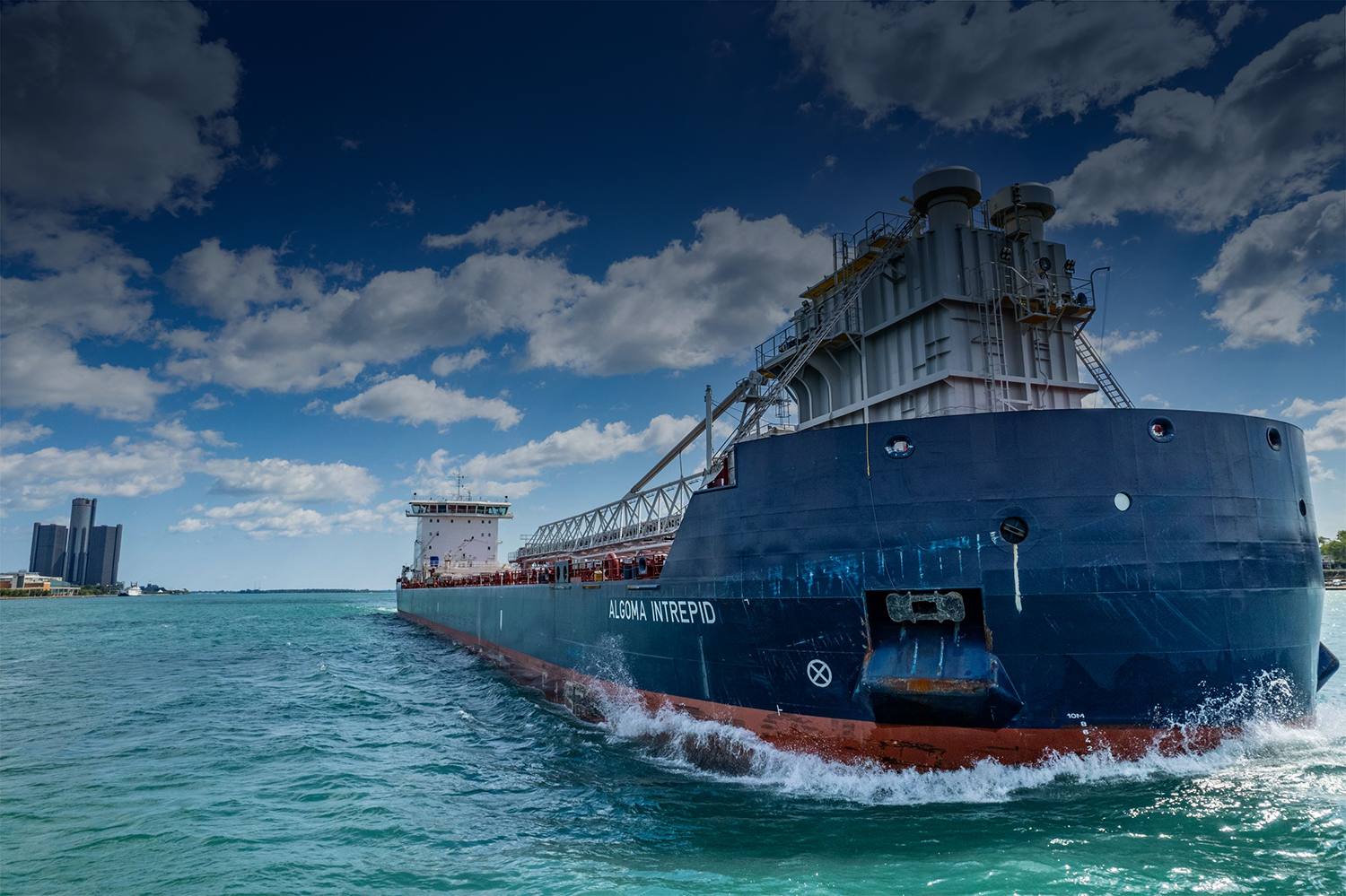
PROTECT MARINE ECOSYSTEMS AND BIODIVERSITY
Algoma is dedicated to minimizing environmental risks and promoting sustainable practices in the marine industry.


Spill Prevention
We are dedicated to upholding the highest standards of spill prevention, response, inspection and preventative actions. Our proactive measures include strict procedures for fueling and liquid cargo, comprehensive spill response plans, and emergency response contracts in all operational regions. We follow environmentally friendly practices such as use of water lubricated stern tubes and biodegradable lubricants.



Aquatic Invasive Species Risk Reduction
Algoma complies with ballast water and biofouling management requirements to mitigate the risk related to aquatic invasive species. We have installed ballast water treatment systems (BWTS) on 22 of our vessels, including our entire ocean self-unloader fleet of 8 as well as 14 in our Great Lakes fleet. These systems represent a significant investment, and Algoma continues to work closely with researchers, regulatory agencies, and manufacturers to advance our understanding of the widely acknowledged challenges related to the operation and efficacy of BWTS in the unique environment of the Great Lakes.


Marine Mammal Protection
Algoma actively supports the Marine Acoustic Research Station (MARS) project, a partnership between Université du Québec à Rimouski and Innovation Maritime. We provide financial and in-kind support to measure and mitigate underwater noise emitted by vessels. We also participate in the Marine Mammal Observation Network by providing monthly whale sighting reports and utilizing their available virtual training module for our bridge crew members. We are reducing underwater radiated noise through measures such as vibration compensators and acoustic insulation on our new vessels.


MINIMIZE ENVIRONMENTAL FOOTPRINT
Algoma is committed to minimizing impacts to water, air, and land from our operations.
Reduce Emissions
Algoma invests in innovative technologies and research to achieve our emission reduction goals. Our Equinox Class, first introduced in 2013, incorporates energy efficiency enhancements leading to a 40% reduction in carbon intensity, on average, compared to their predecessors. The Algoma Bear, the newest Equinox Class vessel is set to arrive in Canada in May 2024 and one Equinox Class vessel is currently under construction, further strengthening our efforts to meet our 40% greenhouse gas (GHG) reduction target by 2030.
NET-ZERO
GHG EMISSIONS BY 2050
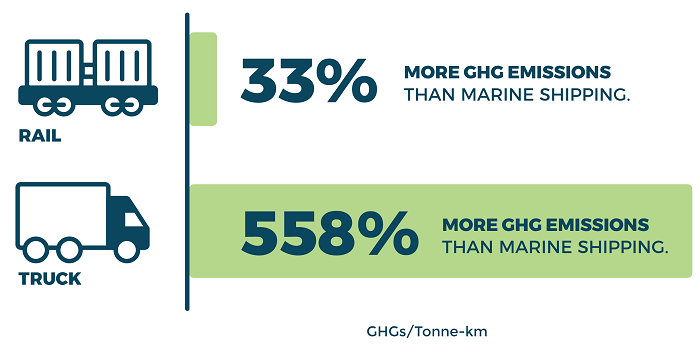
Improve Air Quality
It is well known that ships are the most fuel-efficient way to move goods with the least amount of carbon emissions, therefore, increasing coastal and inland shipping can be part of the solution for climate change. Short sea shipping, whereby cargoes are moved via inland and coastal waterways, is more carbon efficient than other land-based transport modes such as rail or truck. When considering national strategies to reduce overall transport emissions, marine shipping can facilitate an overall reduction.
Further information on the efficiency of marine transport can be found here.
Reduce Waste Generation
Algoma aims to reduce waste generation throughout our operations. We have implemented multi-stream waste stations on our domestic vessels, encouraging our seafarers to segregate waste for recycling or composting. While recycling may not always be feasible in remote trading routes, we explore new ways to minimize waste at its source. To avoid single-use products, we provide reusable items like cups and mugs to our seafarers. At our head office, we have implemented three-stream waste systems, including composting, to manage waste.
of Organic Waste composted for the 2023 season.
of Mixed Recycling for the 2023 season.
of Cardboard recycled for the 2023 season.
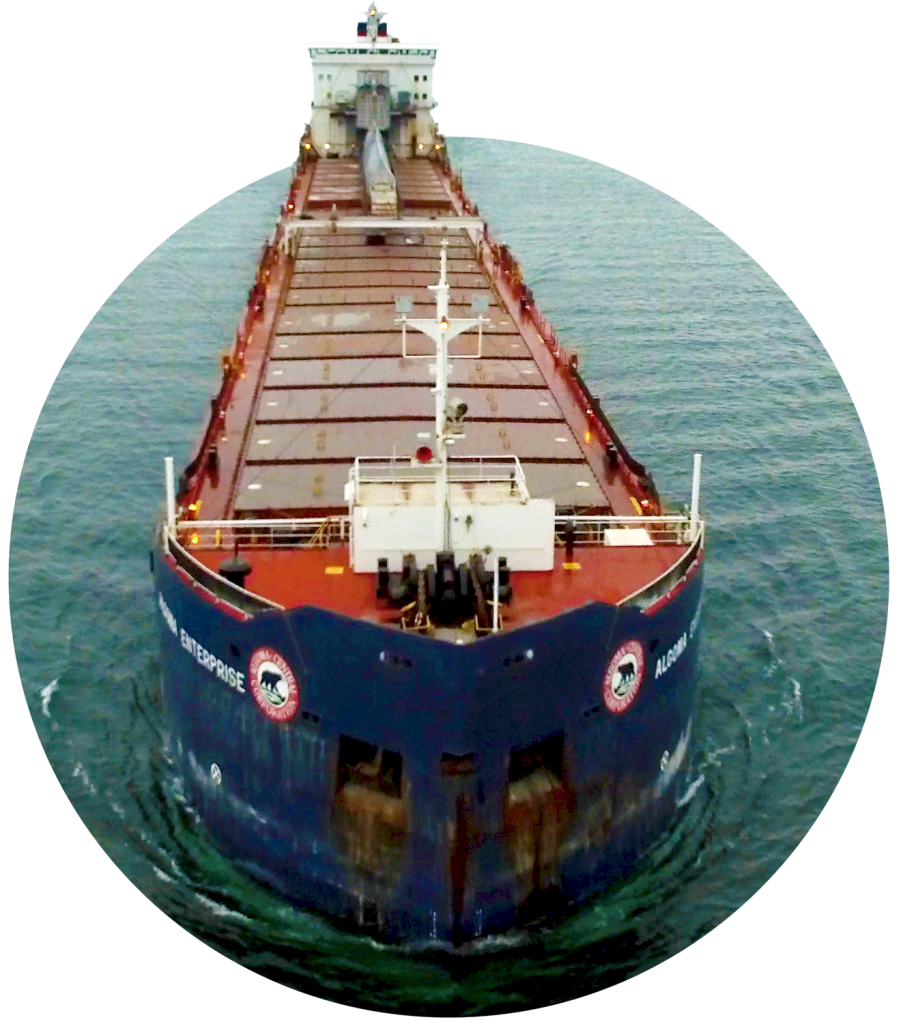
Responsible Ship Recycling
As Algoma continues to welcome new builds to upgrade our fleet, we have retired a number of older vessels in recent years. We are committed to ensuring these end-of-life vessels are recycled only at responsible ship recycling facilities where the dismantling and recycling processes will not pose any unnecessary risks to human health, safety or the environment.
- Vessels are recycled at facilities aligned with our Ship Recycling Policy
- Responsible practices outlined in our policy include:
- An Inventory of Hazardous Materials is prepared for each vessel and provided to the recycling facility.
- Algoma will enter into recycling contracts only with facilities that commit to recycling operations in adherence with the Basel Convention, European Directives (where applicable) and the principles of the IMO Hong Kong Convention for the Safe and Environmentally Sound Recycling of Ships (2009).
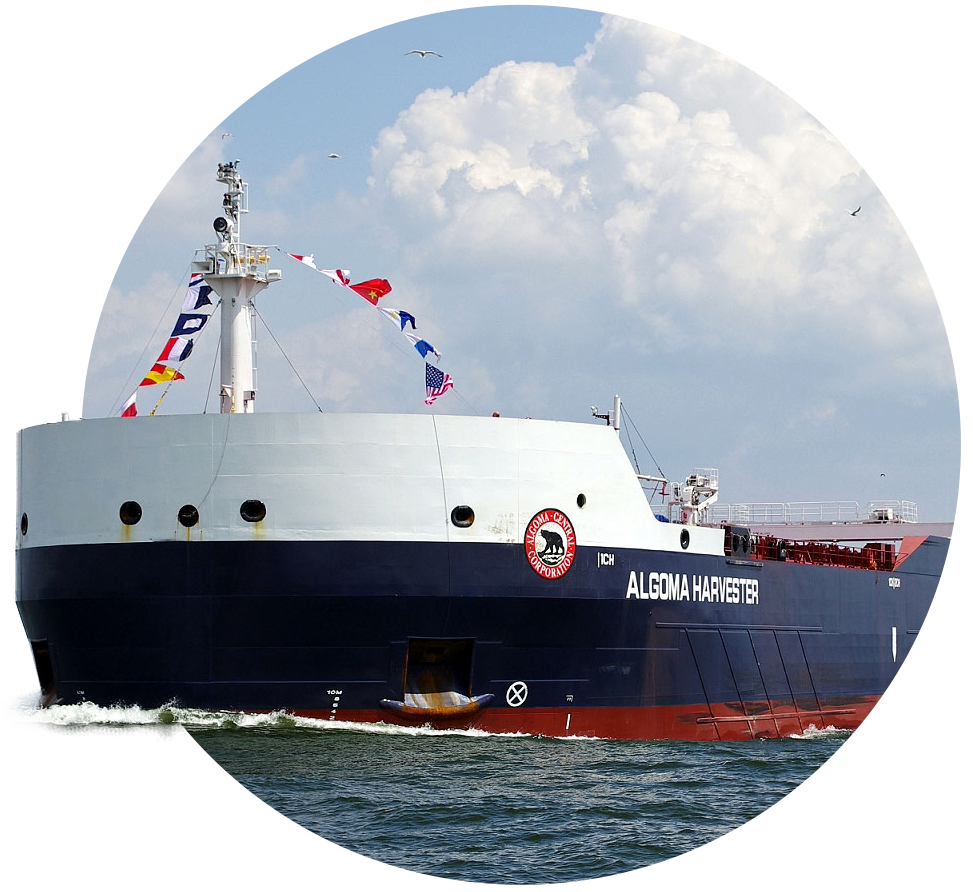
Ongoing Fleet Renewal and Innovation
An important element of our business is to look for growth opportunities and, if the investment fits into our strategic plan, we move forward based on thorough analysis. Considerations for the future include ongoing fleet renewal, new innovations and vessel designs, partnerships and collaboration, growing with our customers, targeted acquisitions, and new decarbonization pathways.
Decarbonization
Marine shipping is already the most sustainable mode of transportation, and we are committed to continuing to reduce our environmental footprint as we implement new tools to increase efficiency. Our dedicated decarbonization team is working on a carbon strategy that focuses on vessel optimization, the research and trialing of biofuels, and advocating for a decarbonization solution that is made for short sea shipping in Canada.
CLOSED LOOP EXHAUST SCRUBBERS
Algoma has made reducing our environmental footprint a priority for more than a decade. We were an early adopter of closed loop exhaust gas scrubbing technology to reduce SOx emissions, particulate matter, black carbon, and overall GHG’s when measured on a life cycle basis.
BIOFUEL TRIALS
We also trialed biofuel on five vessels in our domestic fleet in 2023. The trial was judged to have been a success, with no significant operational or technical difficulties encountered, indicating that this fuel can be used with only minor vessel modifications required. While the carbon factor for this fuel has not yet been approved by Transport Canada, it is expected that use of this crop waste-based fuel results in a significant reduction in GHG emissions on a life-cycle basis. Trials will continue in 2024
GREEN SHIPPING CORRIDOR PROGAM
Under Transport Canada’s Green Shipping Corridor Program, Algoma received grant funding for five studies to support research on the feasibility of using alternative fuels and technologies in the Great Lakes region, specifically for:
- Biofuel Feasibility Study
- Wind Assisted Propulsion System Feasibility Study
- Shore Power Feasibility Study
- Next Generation Lakers Design
- Container shipping study – Articulated Tug-Barge unit
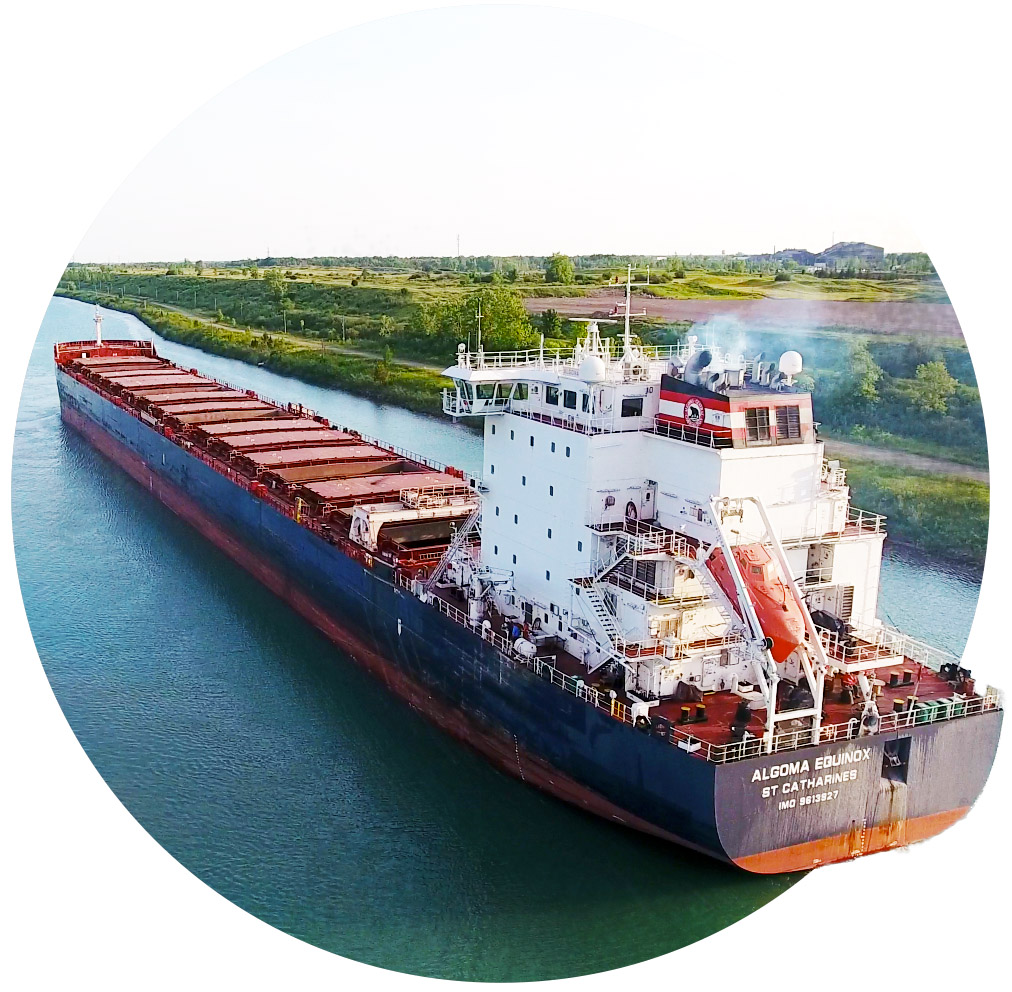
STAY CONNECTED
Get the latest business news and updates:
By submitting this form, you are consenting to receive marketing emails from: Algoma Central, 63 Church St, St. Catharines, ON, Ontario, L2R 3C4, CA. You can revoke your consent to receive emails at any time by using the SafeUnsubscribe® link, found at the bottom of every email.
